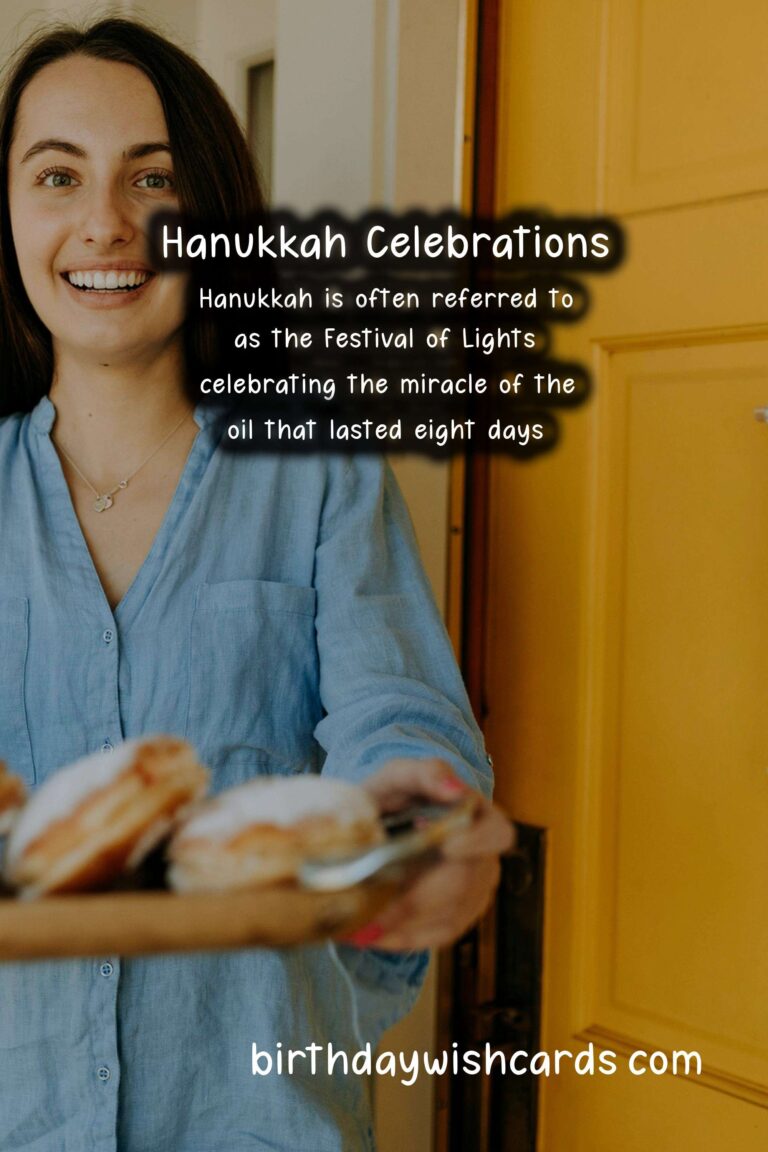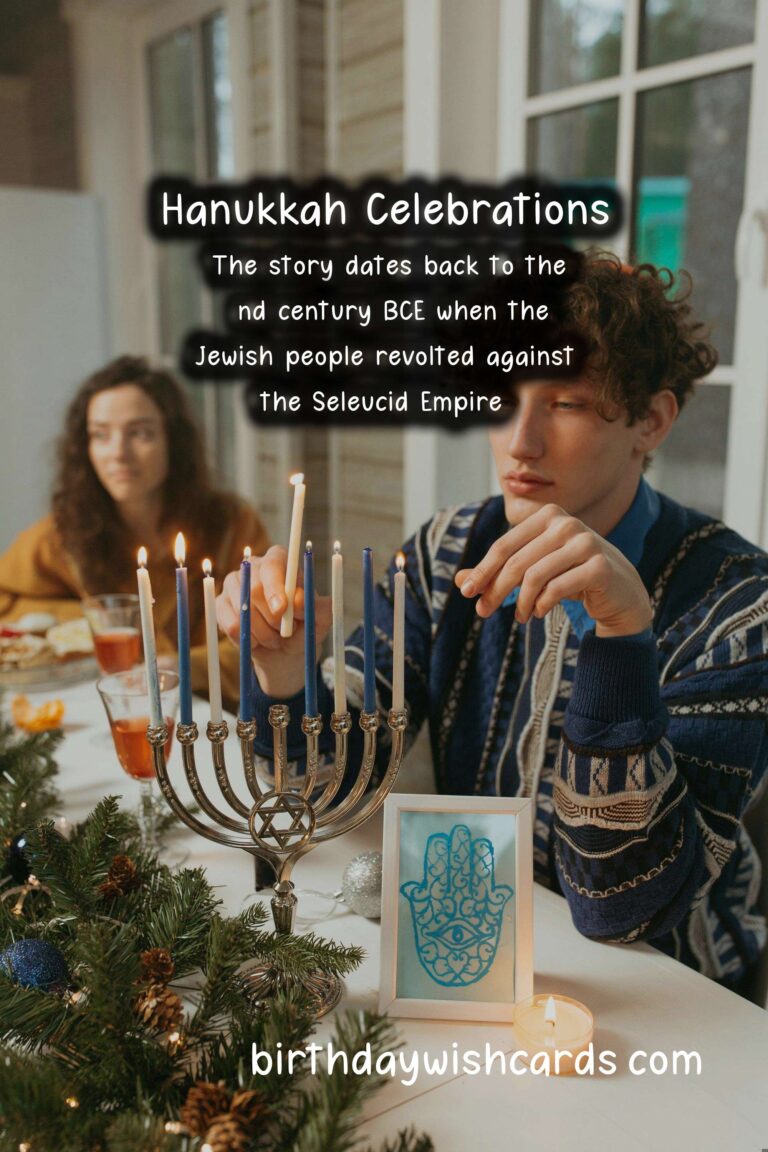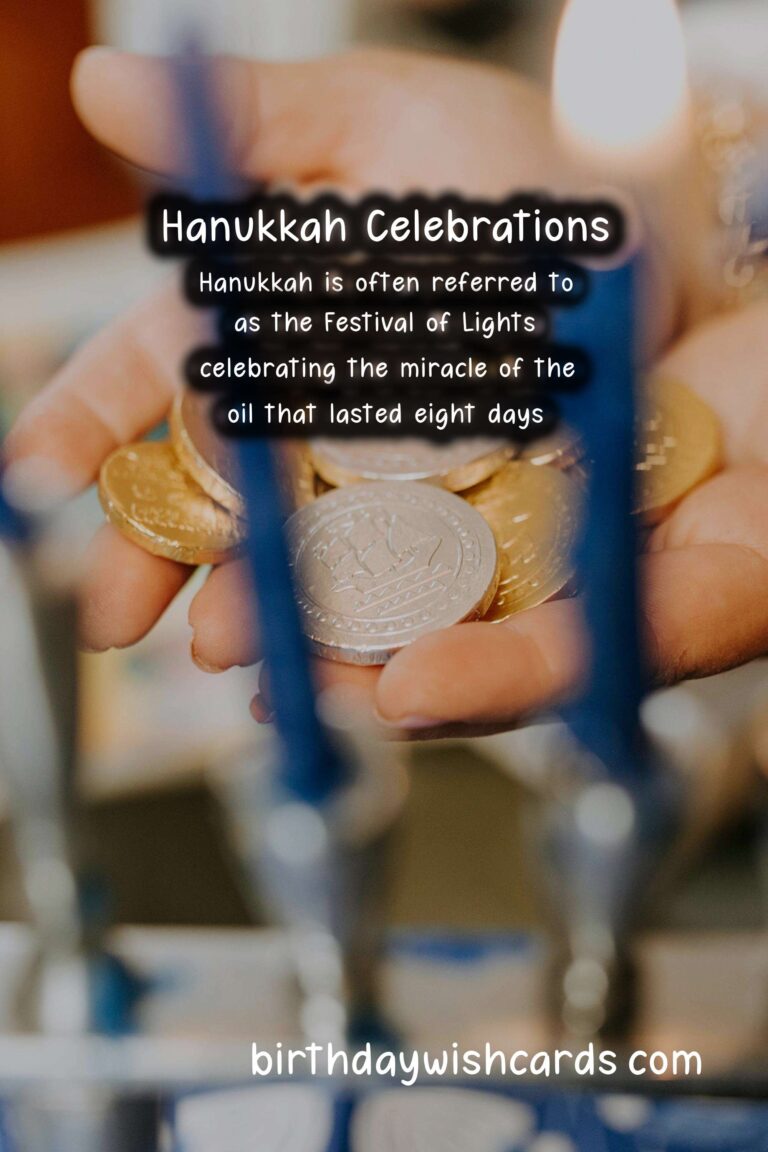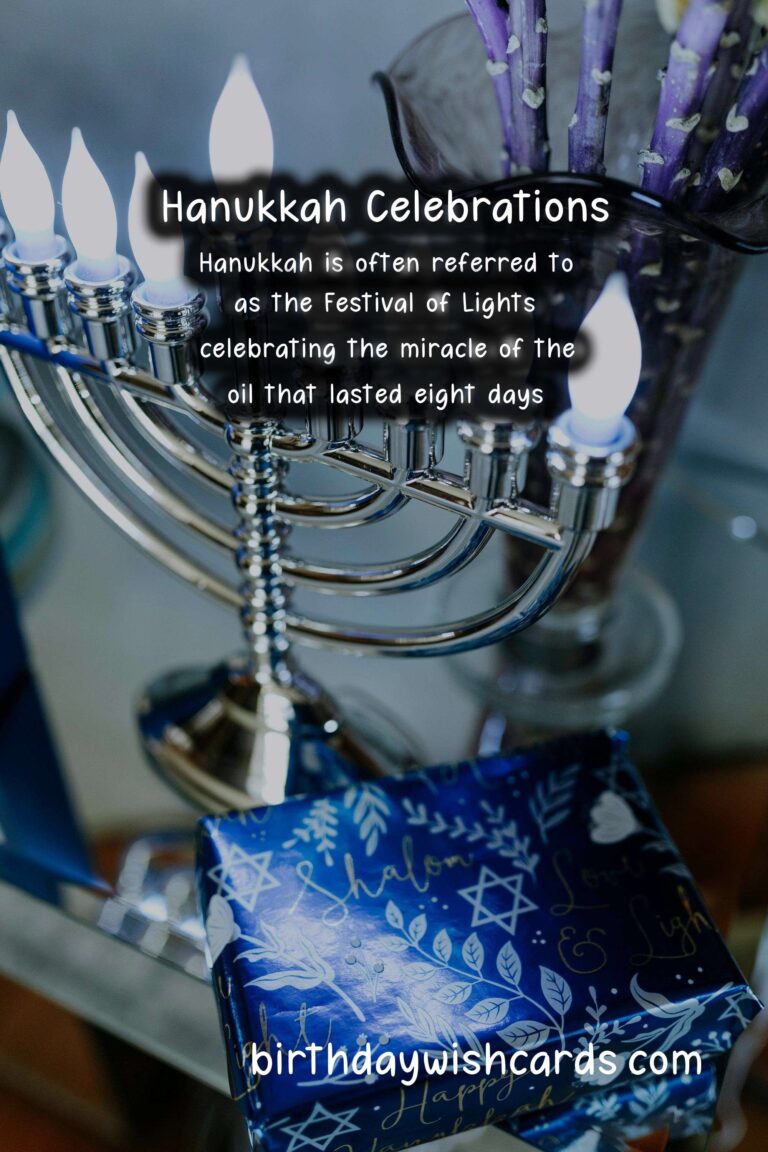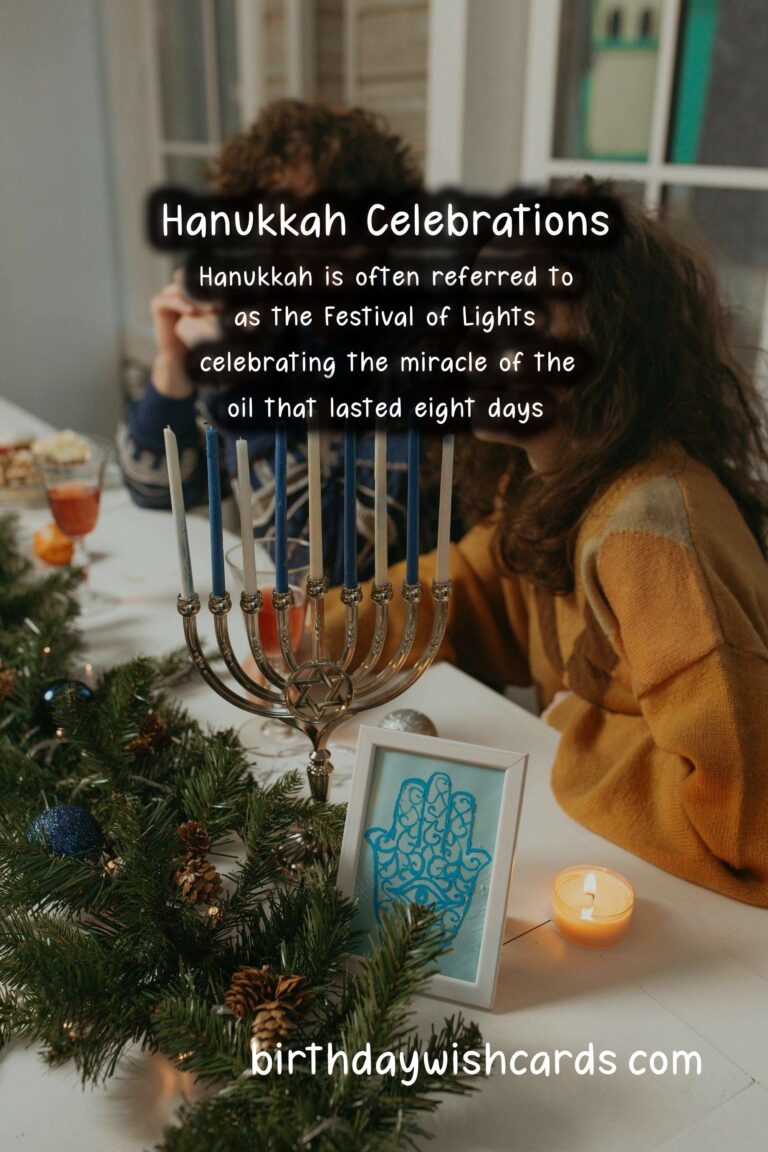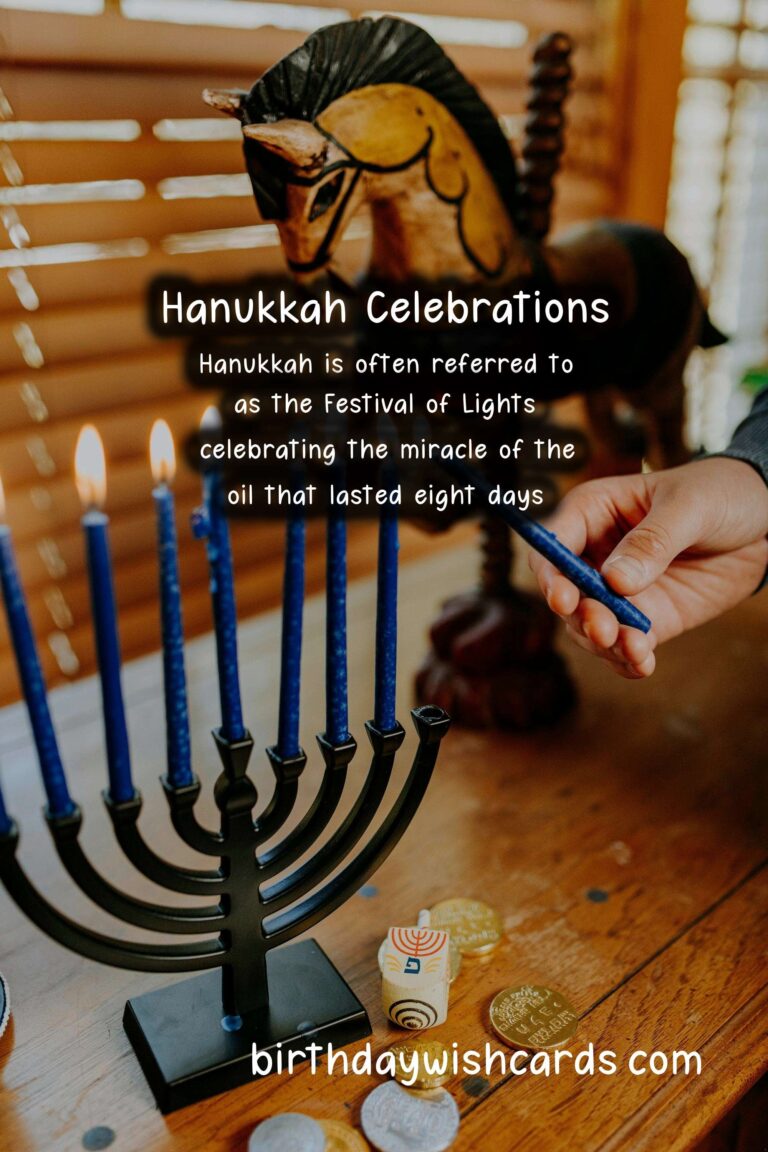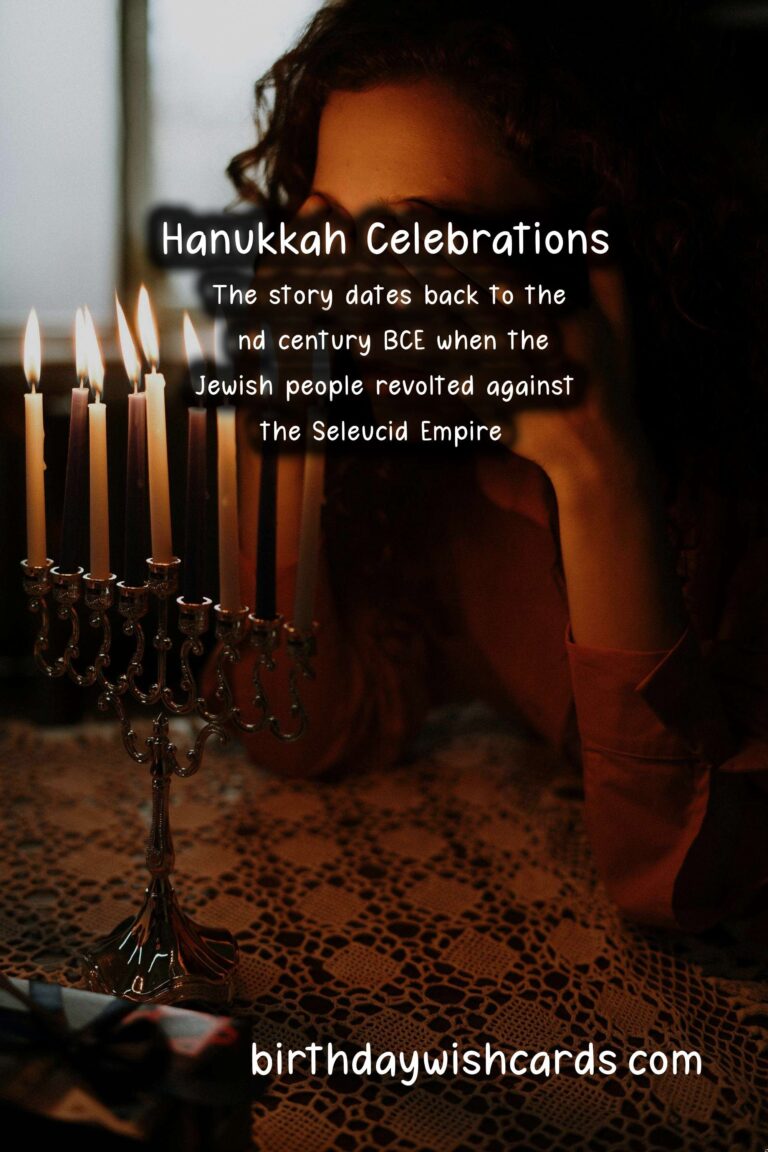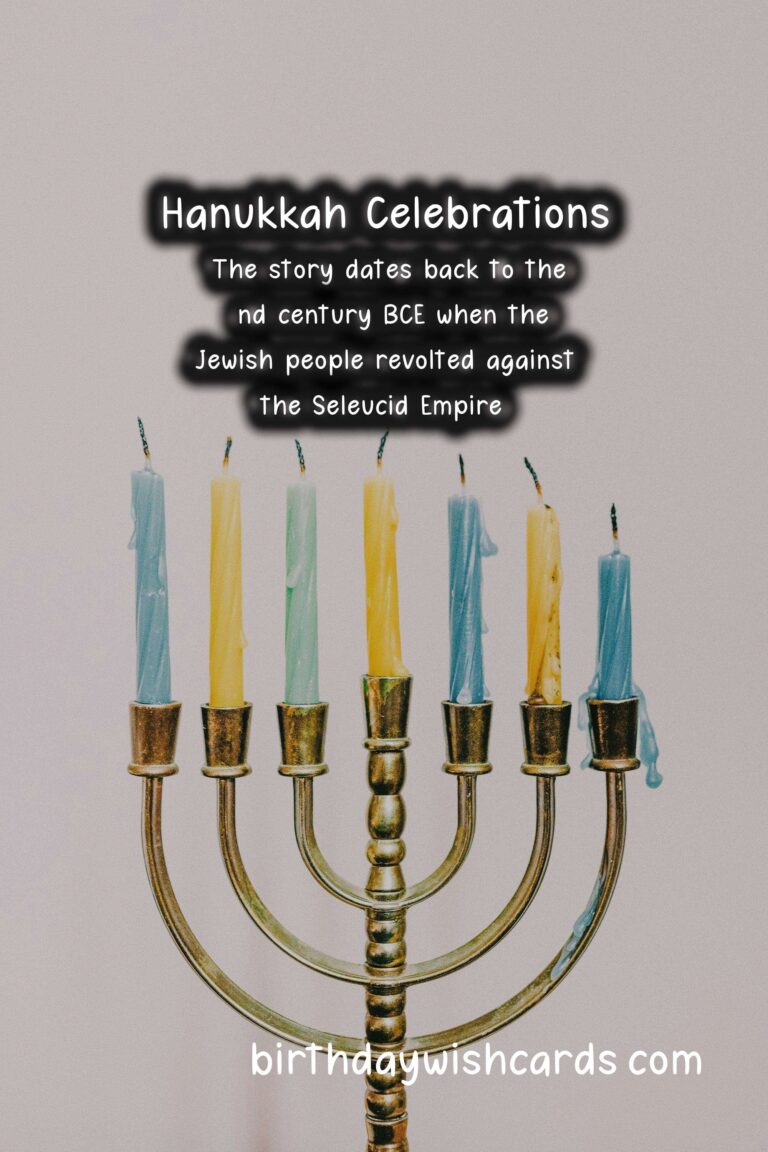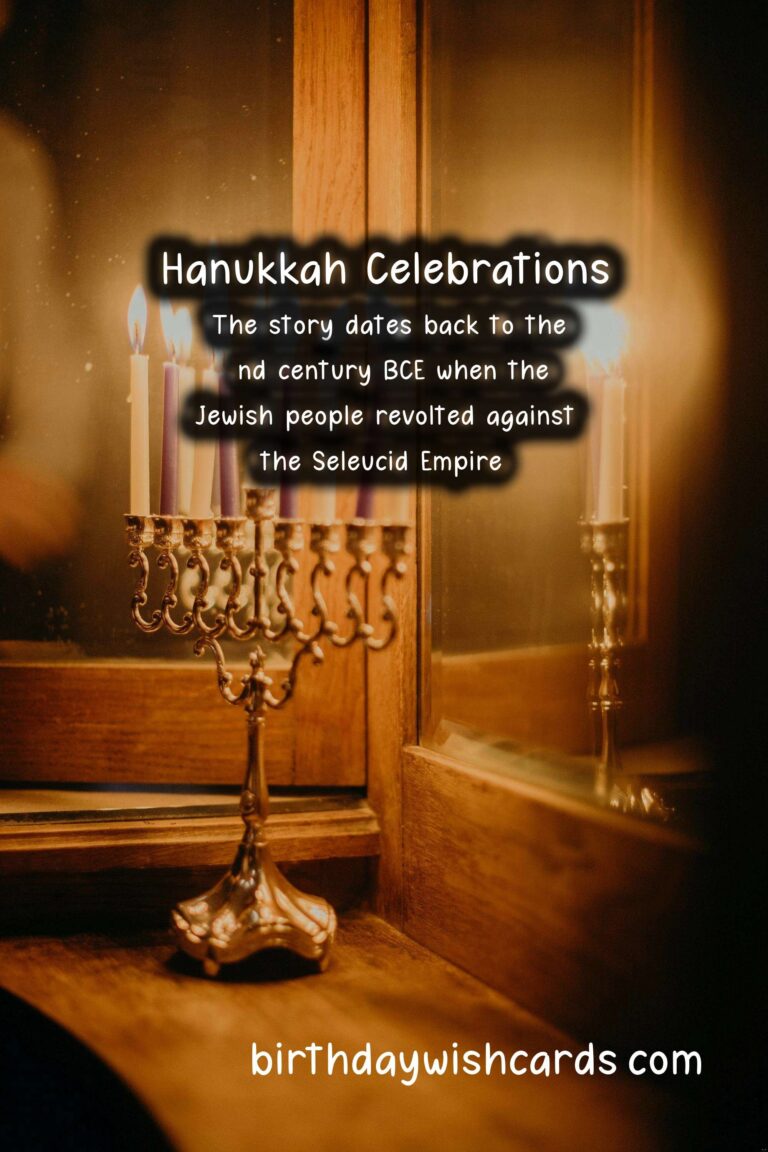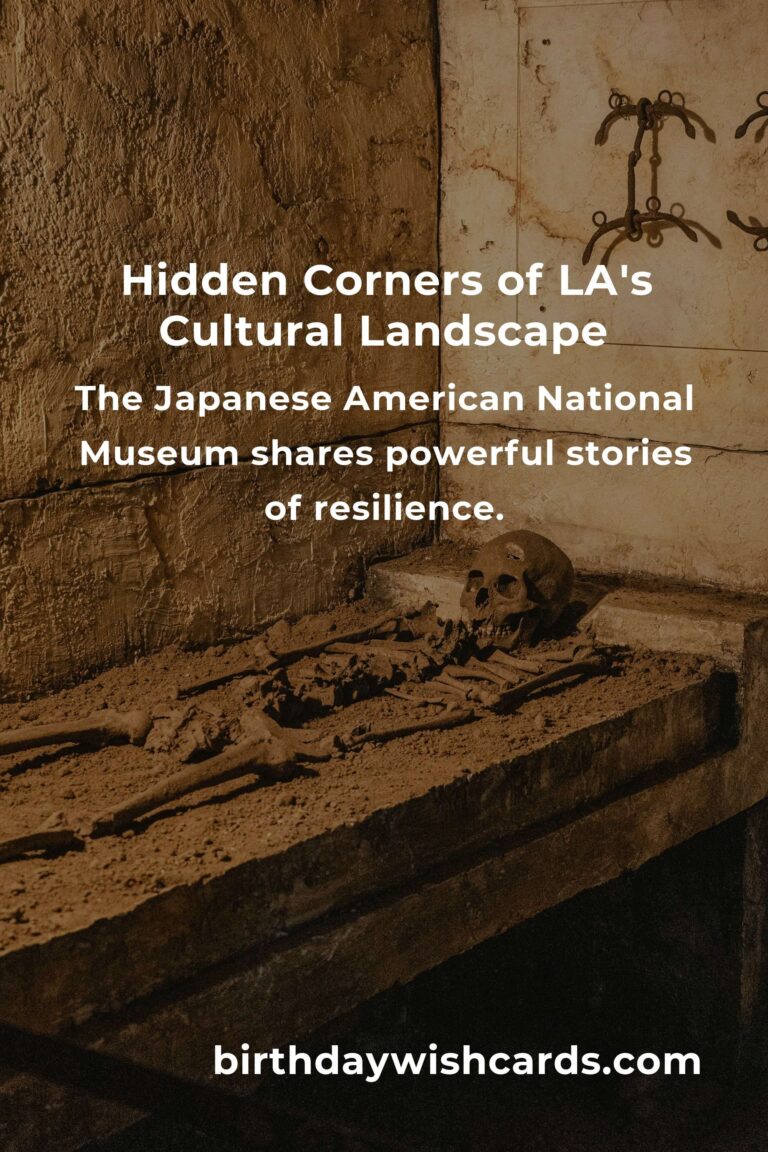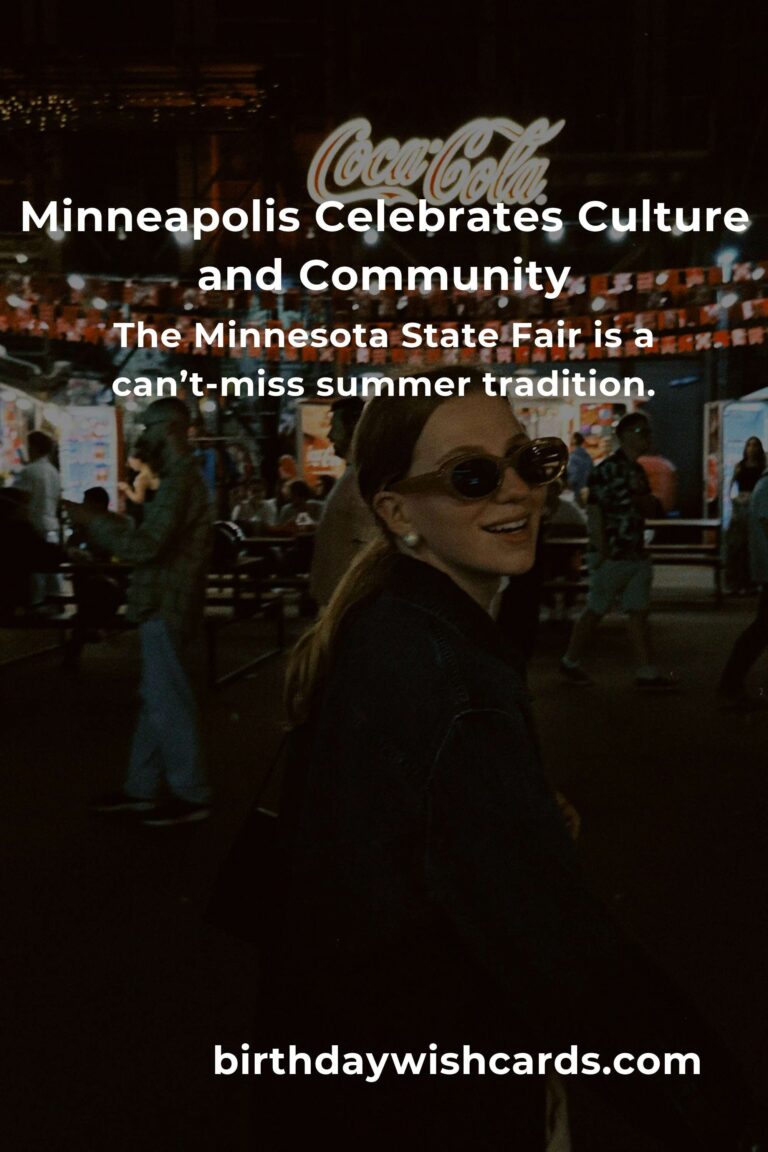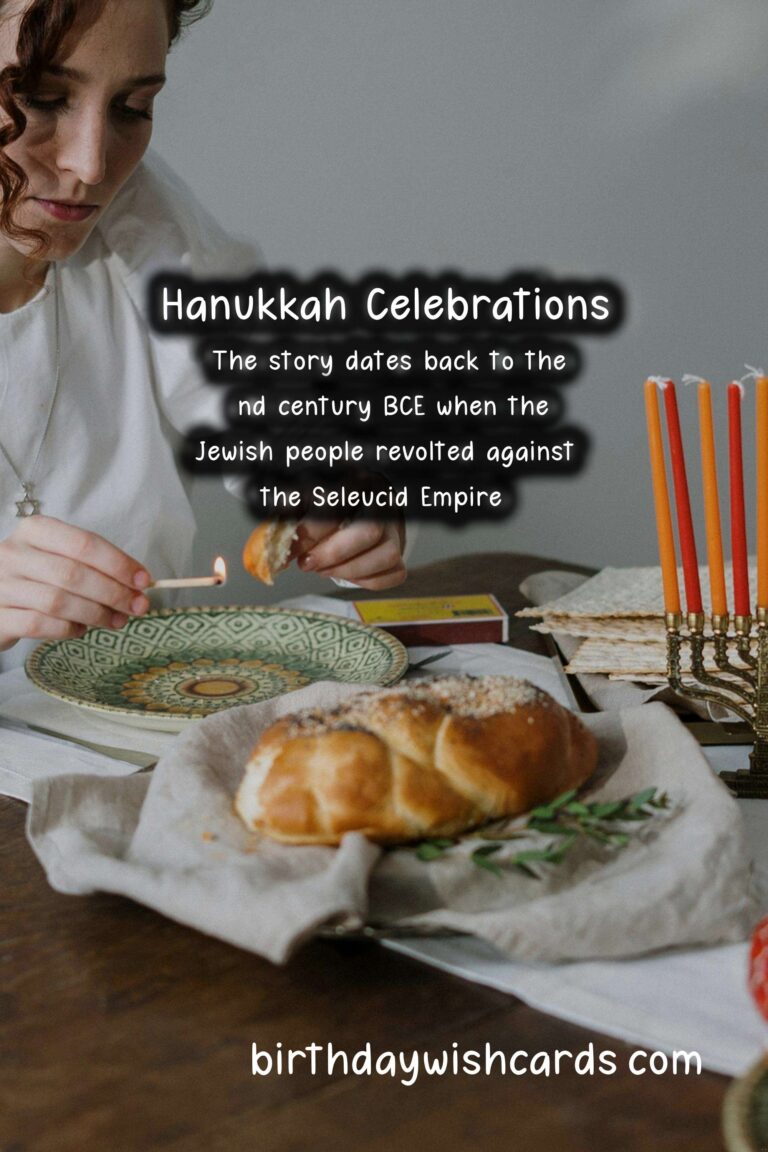
Hanukkah, often referred to as the Festival of Lights, is a significant celebration for Jewish communities around the world. It commemorates the rededication of the Second Temple in Jerusalem and the miracle of the oil that lasted eight days. This article explores the various traditions and customs associated with this vibrant holiday, showcasing why Hanukkah holds a special place in the hearts of many.
The Historical Background of Hanukkah
To understand why Hanukkah is special, it is essential to delve into its historical roots. The story of Hanukkah dates back to the 2nd century BCE when the Jewish people were under the rule of the Seleucid Empire. King Antiochus IV sought to impose Hellenistic culture and religion upon the Jewish people, leading to a revolt led by Judah Maccabee and his brothers.
After a series of battles, the Maccabees succeeded in reclaiming the Temple in Jerusalem, but they found it desecrated by the Seleucids. Despite the odds, they managed to find a small jar of oil, enough to light the menorah for one day. Miraculously, the oil lasted for eight days, which is why Hanukkah is celebrated for eight nights.
Lighting the Menorah
One of the most recognized symbols of Hanukkah is the menorah, a nine-branched candelabrum. Each night of Hanukkah, an additional candle is lit, culminating in eight candles plus the shamash, the helper candle used to light the others. Families gather to recite blessings, sing songs, and celebrate together as they light the menorah.
Customs and Traditions of Hanukkah
Hanukkah is rich with traditions that enhance the celebratory atmosphere of the holiday. Here are some popular customs:
Playing Dreidel
The dreidel is a four-sided spinning top with Hebrew letters on each side, representing the phrase “A great miracle happened there.” Playing dreidel is a fun activity for families, where players bet tokens or chocolate gelt on the outcome of the spins.
Eating Traditional Foods
Food plays a significant role during Hanukkah, with many traditional dishes centered around oil to commemorate the miracle. Latkes, or potato pancakes, and sufganiyot, or jelly-filled doughnuts, are staple foods enjoyed during the festival. These dishes not only symbolize the oil but also bring families together around the dining table.
Gift Giving
While not a religious requirement, exchanging gifts has become a popular custom during Hanukkah, especially among children. This act of giving enhances the spirit of the holiday and fosters a sense of joy and appreciation within families.
Hanukkah Songs and Music
Music is an integral part of Hanukkah celebrations. Traditional songs like “Maoz Tzur” and “Sevivon, Sov Sov Sov” are sung during candle lighting and family gatherings. These songs tell the story of the Maccabees and the miracles of Hanukkah, perpetuating the holiday’s legacy through generations.
The Significance of Hanukkah
Beyond the rituals and customs, Hanukkah holds profound significance. It serves as a reminder of the enduring spirit of the Jewish people, celebrating resilience, faith, and the triumph of light over darkness. This festival encourages reflections on personal freedoms and the importance of cultural identity.
Hanukkah Around the World
Hanukkah is celebrated globally, with each community adding its unique customs. From large public menorah lightings in cities to private family gatherings, the joy of Hanukkah can be felt in diverse ways among Jewish populations worldwide. Variations in celebrations highlight the richness of the Jewish diaspora.
Conclusion
In conclusion, Hanukkah is a special occasion marked by deep historical roots, cherished traditions, and joyous celebrations. The festival not only honors the miracle of the oil and the bravery of the Maccabees but also reinforces the importance of community and family. As the menorah is lit each night, it serves as a beacon of hope and light for all.
Hanukkah is often referred to as the Festival of Lights, celebrating the miracle of the oil that lasted eight days. The story dates back to the 2nd century BCE when the Jewish people revolted against the Seleucid Empire. 
